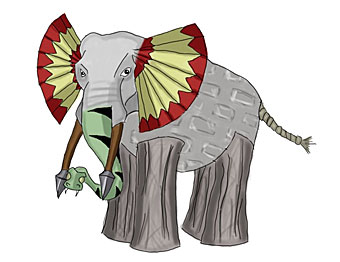The Blind Men and the Elephant
(A poem that expresses misconceived judgements based on incomprehensible, or at least, inadequate information)
American poet John Godfrey Saxe (1816-1887) based this poem, on a fable that was told in India many years ago. It is a good warning about how our sensory perceptions can lead to some serious misinterpretations; especially when the investigations of the component parts of a whole, and their relations in making up the whole, are inadequate and lack co-ordination.
PLEASE NOTE: You are not allowed to use any of the following images for any purpose without making arrangements for a monetary contribution! You may make arrangements for payment by writing to John Robertson at this e-mail contact (just click it) or use the following e-mail address: words@wordinfo.info to negotiate payments.
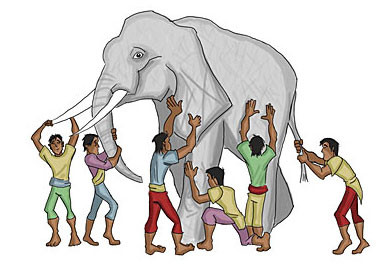
To learning much inclined,
Who went to see the Elephant(Though all of them were blind),
That each by observationMight satisfy his mind
The First approached the Elephant,
And happening to fall
Against his broad and sturdy side,At once began to bawl:
"God bless me! but the ElephantIs very like a wall!"
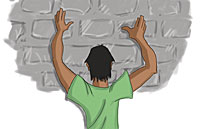
The Second, feeling of the tusk,
Cried, "Ho! what have we here
So very round and smooth and sharp?To me 'tis mighty clear
This wonder of an ElephantIs very like a spear!"
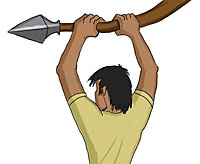
The Third approached the animal,
And happening to take
The squirming trunk within his hands,Thus boldly up and spake:
"I see," quoth he, "the ElephantIs very like a snake!"
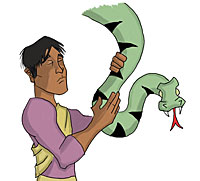
The Fourth reached out an eager hand,
And felt about the knee.
"What most this wondrous beast is likeIs mighty plain," quoth he;
" 'Tis clear enough the ElephantIs very like a tree!"

The Fifth, who chanced to touch the ear,
Said: "E'en the blindest man
Can tell what this resembles most;Deny the fact who can
This marvel of an ElephantIs very like a fan!"
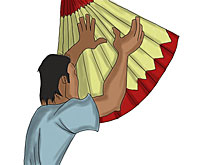
The Sixth no sooner had begun
About the beast to grope,
Than, seizing on the swinging tailThat fell within his scope,
"I see," quoth he, "the ElephantIs very like a rope!"
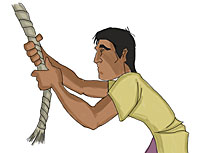
And so these men of Indostan
Disputed loud and long,
Each in his own opinionExceeding stiff and strong,
Though each was partly in the right,And all were in the wrong!
Moral:
So oft in theologic wars,
The disputants, I ween,
Rail on in utter ignoranceOf what each other mean,
And prate about an ElephantNot one of them has seen!
The composition of the elephant as the blind men described it.
